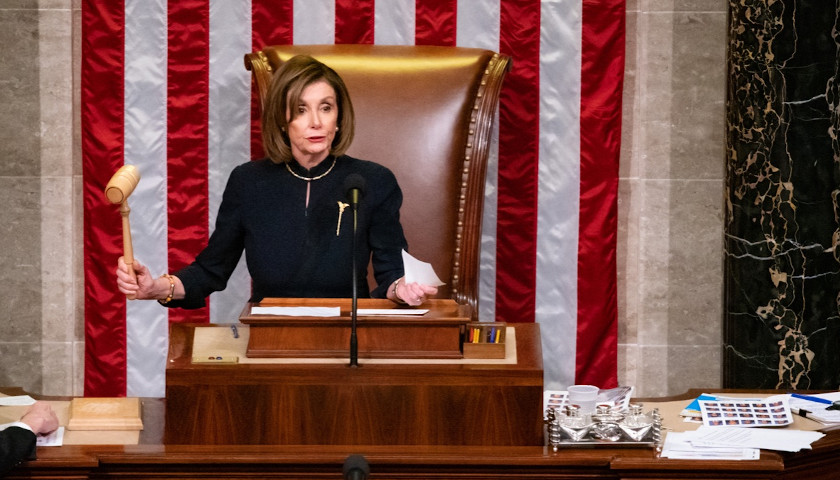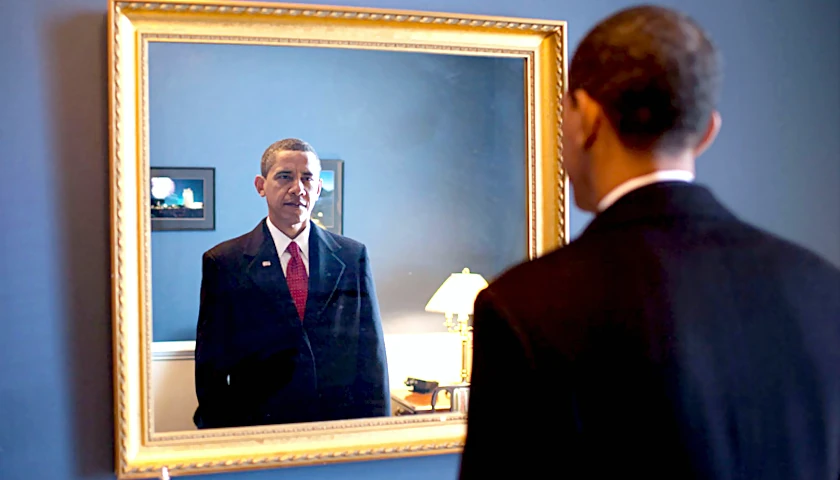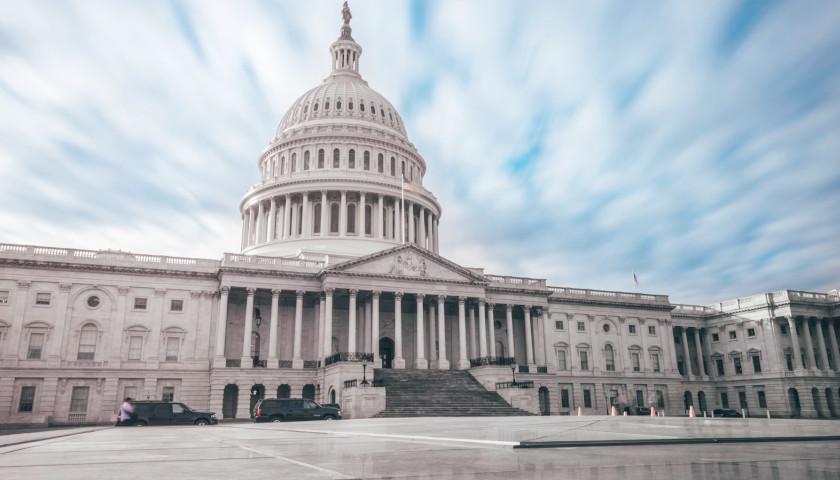by Conrad Black
As far as can be determined, the question of whether the Senate should conduct a trial or dismiss the spurious articles of impeachment as unworthy of trial by vote of the majority, is being addressed as a matter of President Trump’s political convenience.
Senator Ted Cruz (R-Texas) is doubtless sincere and may be accurate in saying that the acquittal that is almost certain to result from a trial will clear the president more convincingly than the Republican majority determining at the outset that the charges are frivolous and vexatious harassment and simply should be rejected.
It is clear from the utterances of the authors of the malicious idiocy that has got impeachment to the Senate, Speaker Nancy Pelosi (D-Calif.), Intelligence Committee Chairman Adam Schiff (D-Calif.) and Judiciary Committee Chairman Jerry Nadler (D-N.J.), that the Democratic line will be they caught the president in wrongful acts but the trained Republican seals in the Senate voted with their partisan prejudices rather than their judicious and independent judgment.
Under the circumstances, then, it is better to go ahead with a trial. If the Senate majority’s wish is for witnesses, the president can invoke executive privilege in some cases, but the confection of the false whistleblowing and its apparent guidance by Schiff and his staff should also be exposed.
Since the legal case is nonsense and the outcome foreordained, it is only a public relations battle now. The farther the administration is seen to enable an airing of the facts, the better and more electorally valuable will be the result. The Democrats created this trap for themselves; they should be allowed to take the consequences when that trap snaps closed on them.
It is unlikely the president will fail to gain some political ground. This is the Democrats’ nuclear option—the ultimate weapon—and it has been bandied about as a threat against Trump even before he won the presidency, as we learned from that pillar of disinterested jurisprudential sophistication, Rep. Al Green (D-Texas).
For Trump-haters, there is nothing he is not guilty of; for his supporters, the entire subject is egregious and defamatory piffle. The opposition to impeachment has drifted gradually toward the president’s side, so the wall-to-wall Democratic bias of almost all the national media has failed to hold back the tide of perception that these charges are legal and constitutional nonsense.
For any reader who has been in a submarine or outer space or Antarctica for the last six months, the charges are abuse of office and contempt of Congress. The first is not a ground for impeachment unless specified as treason, bribery, or another high crime or equivalent misdemeanor—and none such is alleged. As to the second charge, the only thing the president is actually guilty of is contempt of Schiff, Nadler, and Pelosi for running a rigged partisan mudslinging operation where the president received none of the protections accorded to defendants by the Bill of Rights; failure to be contemptuous of it would itself be contemptible.
The president was only asking for the facts about the Bidens’ conduct in Ukraine, not for an indictment of the Bidens. Any application of pressure is denied by the Ukrainian president, and in any case, the allegedly withheld assistance to Ukraine was delivered and the investigation requested did not occur. If they weren’t so obnoxiously sanctimonious, Nadler and Schiff would be eligible for theatrical awards for deadpan comedy in presenting such bunk as grave adjudication.
Nothing particularly controversial happened at all, despite the unctuous head-wagging of comparatively moderate opponents of the president, so it is almost impossible for it to do any appreciable harm to him politically: the Democrats will self-disarm, well before U.S. Attorney John Durham’s investigation almost certainly produces a deadly serious damnation, probably accompanied by some well-founded indictments, of the Obama intelligence and justice operations.
The much more important question is whether this is the time to debunk the practice of obviously unjustified recourse to the drastic remedy of presidential impeachment and to deter future reflexive partisan recourse to the attempted criminalization of policy differences.
Alexander Hamilton in Federalist 65 warned of the routinization of presidential impeachment. The danger, partly, is that impeachment could become a regular delaying and tainting tactic by the party out of the White House if it has the majority in the House of Representatives (as has been the case in 36 of the last 52 years in which three of the country’s four impeachment crises occurred, plus the Iran-Contra approach during Ronald Reagan’s administration). This is certainly not what the principal authors of the Constitution favored, and there is no reason to believe that it is what the public wishes.
But unusually strong feelings about the incumbent president are hard to separate from the abstract question of whether the public still wishes to retain presidential impeachment solely for extreme cases of presidential misconduct. This has never occurred and the elegiacal recollections of the Nixon and Clinton impeachments are misplaced. Neither they nor Andrew Johnson nor Donald Trump should ever have been threatened with impeachment, though Nixon might have merited a censure vote.
Senate Majority Leader Mitch McConnell (R-Ky.) is on safe ground following the Clinton precedent about determining whether to call witnesses after the arguments. No witnesses will change the outcome. The prosecution, feeble though it is, has more at risk with witnesses than does the president. The cant and emotionalism that enshrouds this final doomed effort to undo the 2016 election probably require a full trial. The public relations battle must be fought to the end. Then, when it is no longer timely or urgent, the Supreme Court should be asked to clarify whether the Constitution’s enumeration of justifications for impeachment is exhaustive, or only illustrative.
The country will be curious to know whether it must expect this kind of nonsense to be a recurrent theme in its politics, a frequent dilatory and muck-raking procedure. Short of being warned off by the Supreme Court, only a revulsion in public opinion will apparently disabuse nasty and dishonest legislators like Nadler and Schiff from such irresponsible abuse of their positions as is now reaching its tawdry climax.
– – –
Conrad Black has been one of Canada’s most prominent financiers for 40 years, and was one of the leading newspaper publishers in the world as owner of the British telegraph newspapers, the Fairfax newspapers in Australia, the Jerusalem Post, Chicago Sun-Times and scores of smaller newspapers in the U.S., and most of the daily newspapers in Canada. He is the author of authoritative biographies of Franklin D. Roosevelt and Richard Nixon, one-volume histories of the United States and Canada, and most recently of Donald J. Trump: A President Like No Other. He is a member of the British House of Lords as Lord Black of Crossharbour.
Photo “Nancy Pelosi” by Nancy Pelosi.






Speaking of money…why are we paying the members of this current clown show their salary? I am really disturbed that they are being paid anything by the taxpayers to do what they are doing currently. We should have all 99 senators and 492 representatives to write down their job descriptions, hand out dismissal slips, then open up a hiring hall to employ the best candidates who apply directly off the street. Oops, there I go again thinking we should and could operate our government like any other sane business.
There is another way to deal with “nasty and dishonest legislators like Nadler and Schiff” (and Pelosi and several others that could be added to the list).
After the Senate acquits President Trump — and it most certainly will — there should be a no-holds-barred, scorched-earth campaign to completely discredit and destroy the political careers of these miscreants.
It’s painfully obvious than none of them are fit to hold any position of trust, and some organization (like Club for Growth, MRC, or AIM) should do whatever is necessary — and by any means necessary — to ensure that they don’t. If and when such a campaign gets underway, I’ll be first in line to support it financially. That would be a far better use of my money than supporting the campaigns of individual candidates…and I’d get a lot more pleasure from it.